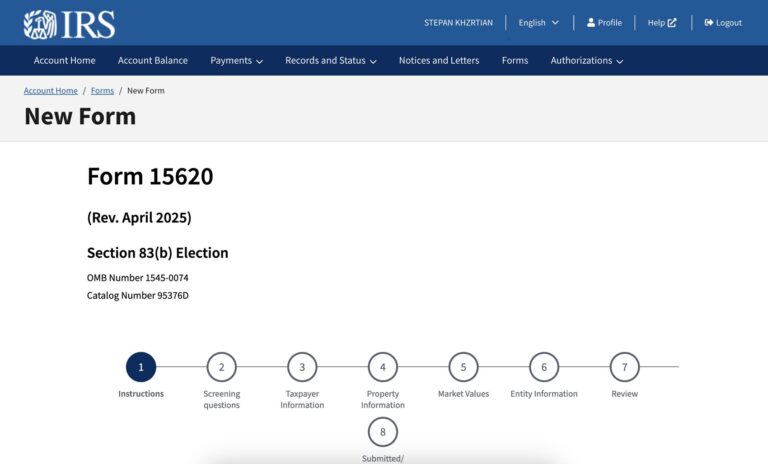This is the twelfth post of Mistakes Founders Make, a series of blog posts that shine light on legal mistakes that startups commonly make and attorneys have to fix. Keep in mind that the post sacrifices detail for simplicity and is for informational purposes only. It should not be taken as advice — whether legal, tax, or other — and does not create an attorney-client relationship.
Just the basics
What’s the problem?
Options should be granted at an exercise price at or above the fair market value (FMV) of the underlying common stock on the date of grant. If you don’t have a 409A valuation report, you’ll end up guessing the FMV of your common stock, which puts the option recipient at significant risk.
How bad is it?
It can be pretty bad. An option that has an exercise price below the FMV exposes the recipient to the risk of enormous taxes and penalties.
How do I avoid this?
Avoid granting options without a 409A valuation report, which tells you the fair market value of your common stock. If you want to grant equity to a service provider (such as an employee or advisor) and you don’t have a 409A valuation report yet, consider granting restricted stock instead.
What’s a “409A valuation report”?
It’s a report prepared by an independent assessor that tells you what the fair market value (or FMV) of your common stock is. The report is good for 12 months from the valuation date (the date as of which the FMV is determined), unless a “material event” happens in the meantime, such as a financing round.
Why is this important?
As a general tax rule, options should be granted at an exercise price at or above the FMV of the common stock on the date of grant. The “exercise price” is the price which the options recipient should pay in order to — you guessed it — exercise each option or, in other words, get the common stock it represents.
Could you bring an example?
Absolutely. Let’s say your 409A valuation report says that one share of common stock has an FMV of $0.05 as of December 1, 2022. If you decide to grant stock options at any point from December 1, 2022 through November 30, 2023, the exercise price of the options should be 5 cents or more (assuming you don’t have a “material event” during this period).
What happens if I grant options below the FMV?
Bad stuff, and by that, I mean tax-related headaches for the option recipient (for example, your employee or advisor) such as having to pay additional income tax, having to pay it sooner than later, and paying a penalty on top of it all.
Sounds rough! When does this come up?
Naturally, this may come up in an IRS audit. Additionally, it may come up during due diligence in relation to a priced round or an exit (such as being acquired or going public).
Can’t I just eyeball the FMV of the common stock? If my par value is $0.00001 and I just started, the FMV should be approximately that much or slightly higher, right?
Would it be the end of the world if you do this? Maybe not, if you’re extra safe and decide that your FMV is, say, 10x your par value only a couple months after founding your company and without having raised a dime. That said, given how high the stakes are here and the amount of detail that goes into preparing a 409A valuation report, you’ll want to think twice before guessing your FMV.
Look, I just started this startup, and I’m keen on keeping it super-lean. I’m not going to pay at least a couple grand on getting this report. Is there any alternative?
Yes. Instead of options, consider granting restricted stock. Although restricted stock should also be granted at a price at or above FMV, they’re not subject to the strict IRS rules that apply toward options, and so, you have more leeway in having your Board determine the FMV of your common stock. Still, keep it safe — apply a significant multiplier toward your par value, depending on how much time has passed since you set up the company, your performance, your financing, and other relevant factors. If and when you do eventually get a 409A valuation report, use this for both options and restricted stock.
Anything else I should keep an eye out when granting options?
This isn’t an exhaustive list, but here are a few common pointers:
- Needless to say, make sure you have a duly adopted Equity Incentive Plan (aka, Stock Plan) before granting options.
- Only W2 employees can get ISOs (or incentive stock options). Everybody else gets NSOs (or non-statutory stock options).
- You can grant options (or other equity under your stock plan, for that matter) to people only while they are serving your company. You cannot grant options to terminated staff.
I’ve always wondered, is my 409A valuation the same as my company valuation?
Great question: nope. You company valuation is essentially what you negotiate in a priced round (for example, $10,000,000 post-money) and factors in things such as the projected value of your business and the rights and protections that the investors are getting through preferred stock. Instead, your 409A valuation report is the value of your common stock, normally based on your performance. Also, while your negotiated company valuation may affect your 409A valuation, your 409A valuation doesn’t normally affect your company valuation.
So, if you get a super-low 409A valuation, don’t fret. In fact, it makes your equity that much more appealing to your service providers, since they’ll have to pay less for it.








